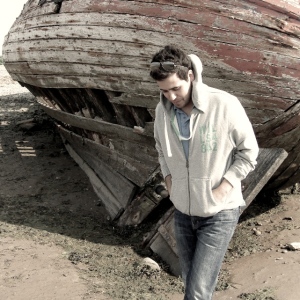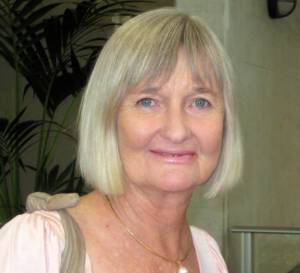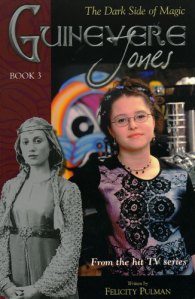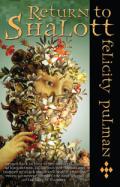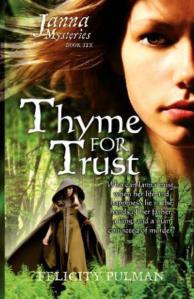The first interview of 2012 Ta Da!
I have been featuring fantastic female fantasy authors (see disclaimer) but this has morphed into interesting people in the speculative fiction world. Today I’ve invited the talented Cheryl Morgan to drop by.
Q: I found collating material for this interview very challenging. You have done so much in the spec fic genre that I didn’t know where to start. So I went for the chronological approach.
In 1995 you produced the first issue of Emerald City, an Ezine containing reviews of books, movies and conventions and interviews. Between 1995 and 2006 when Emerald City ceased publication, you released 134 issues, most of which you wrote yourself. It’s great that the files of all of Emerald City’s issues are still available. So much work! This Ezine received several Hugo Award nominations and won Best Fanzine in 2004. The ‘zine turned semi-pro and was nominated for best Semiprozine, while you were nominated for Best Fan Writer in 2006. If you could go back, knowing what you know now, and give yourself some advice before you started the first issue of Emerald City what would it be?
I think you have overdone the awards there. Emerald City ceased publication in 2006. My second Hugo win was in 2009, so for work published in 2008. That clearly can’t refer to Emerald City. There are probably other nominations for Best Fan Writer that don’t refer to the ‘zine either.
As to your question, I’d suggest that I spent more time reading reviews by people like John Clute and Gary K. Wolfe before trying to write my own. One of the interesting things about working online is that your early work is all out there for everyone to see for ever more.
Q: In an post on John Scalzi’s blog you said ‘Back when I first started getting nominations there was a huge upset about it and I was accused of, you guessed it, not being fannish enough. Apparently the fact that I published Emerald City electronically rather than on paper meant that it wasn’t a proper fanzine, and the fact that I wrote mainly book reviews meant that I was too serious about SF to be a proper fan.’ Publishing electronically back in 1995 was really cutting edge. How did you come to do this?
It was just circumstances really. I had recently moved from the UK to Australia for work, and I wanted my friends back in the UK to be able to read my fanzine. I had also just met a wonderful man called Kevin Standlee, and I wanted to send the ‘zine to him and his friends in California. The only way I could afford to do that was to publish electronically.
Q: I noticed in your photos on your twitter profile you have a Glenda Larke book and an Alison Goodman book. (I’ve interviewed both of these authors for this series). What is it about their writing that appeals to you?
I loved Alison’s last book, The Two Pearls of Wisdom (aka Eon). What attracted me about it was the accurate and sympathetic portrayal of a trans woman. That’s rare in any book, and in a book aimed at the YA market is very rare indeed. I was lucky enough to meet Alison at the recent Melbourne Worldcon and thank her for the book. She’s a lovely person. I’m now reading the new one, The Necklace of the Gods (aka Eona), and enjoying it too.
I’ve known Glenda for a long time and we are good friends, despite the vast geographic distance between us. She’s a great writer who tackles all sorts of serious themes in a very intelligent way. I have no doubt that she’d be getting awards if she were a man.
Q: You seem to be a very dedicated SF fan, driven to discuss and dissect the genre. I’ve always loved the genre, even way back when I didn’t know what the word genre meant. Discovering SF Fandom when was 18 meant discovering people who talked about the things I was interested in. (All my life before this I had been the weird one). When and how did you discover the genre and fandom?
 I’ve been reading SF&F for as long as I can remember. I read Dan Dare and X-Men comics as a kid. I’m old enough to have seen the first ever episode of Doctor Who (and was promptly banned from watching it by my parents because it gave me nightmares). I first read Lord of the Rings when I was about 13. It is in my DNA.
I’ve been reading SF&F for as long as I can remember. I read Dan Dare and X-Men comics as a kid. I’m old enough to have seen the first ever episode of Doctor Who (and was promptly banned from watching it by my parents because it gave me nightmares). I first read Lord of the Rings when I was about 13. It is in my DNA.
As to fandom, I was involved a lot in Dungeons & Dragons fandom as a student, but when I started my first job one of my bosses found out about my hobby and suggested I try attending an SF convention. His name was Martin Hoare, and he introduced me to his best mate, a fellow called Dave Langford. It was all downhill from there.
Q: You are the person behind Wizard’s Tower Press, which releases mainly digitally, making out-of-print works available. You also published the magazine, Salon Futura. What led you to go into publishing?
US immigration. As described on my blog, I have effectively been banned from visiting the USA. This means it is difficult for me to see all of my friends, and in particular Kevin. The only simple way I can get back there is to create a business that requires me to visit SF conventions, and will allow me to apply for a business visa. Hence I created Wizard’s Tower, which is a publishing company.
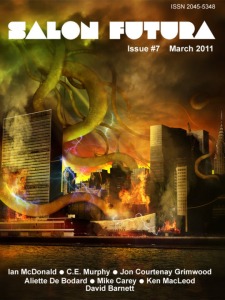 Q: The first issue of Salon Futura was launched that the World Science Fiction Convention in September 2010. That would have been the Melbourne World Con. As someone who lives in Bath in the UK that was a long way to go to launch Salon Futura. This is a ‘new online non-fiction magazine devoted to the discussion of science fiction, fantasy and related literature.’ What led you to produce Salon Futura?
Q: The first issue of Salon Futura was launched that the World Science Fiction Convention in September 2010. That would have been the Melbourne World Con. As someone who lives in Bath in the UK that was a long way to go to launch Salon Futura. This is a ‘new online non-fiction magazine devoted to the discussion of science fiction, fantasy and related literature.’ What led you to produce Salon Futura?
As a small press, it is very hard to sell books, because you have to get them in front of people without being annoying and spammy. The obvious thing to do is to start a magazine. And I needed to do something different, so I thought I would try doing a literary review magazine, somewhere you would get serious discussion rather than just reviews and fan squee. Sadly that didn’t work to well.
Q: You also have an ebook store that provides a sales outlet for other small presses like Australia’s Twelfth Planet Press. Is that part of the same grand plan?
 Not entirely. The store came about initially because I needed to be able to sell Wizard’s Tower books, but it was obvious to me that, even with Salon Futura as a marketing vehicle, people would be unlikely to come to a store that sold so few books. So I asked a few other independent publishers if they would like me to sell their books, and things have grown from there. We now have seventeen publishers represented, including ourselves, and more are being added. I’m particularly pleased to be able to bring Australian books to a wider market.
Not entirely. The store came about initially because I needed to be able to sell Wizard’s Tower books, but it was obvious to me that, even with Salon Futura as a marketing vehicle, people would be unlikely to come to a store that sold so few books. So I asked a few other independent publishers if they would like me to sell their books, and things have grown from there. We now have seventeen publishers represented, including ourselves, and more are being added. I’m particularly pleased to be able to bring Australian books to a wider market.
I have also become convinced that it is necessary for the health of the publishing industry for there to be competition to Amazon. Charlie Stross blogged recently about how Amazon controls 80% of the world-wide market for ebooks. That’s an astonishing level of market dominance. It doesn’t matter too much when there are plenty of alternatives in the form of bricks-and-mortar stores selling paper books, but as Jonathan Strahan and Alisa Krasnostein found out recently the viability of such stores is very much in doubt. In a few years time we could be facing a world in which most towns have no bookstore, and Amazon has a substantial majority of the market for online sales of both paper books and ebooks. Short of a technology shift that outflanks their existing systems, or government regulation, it is hard to see how they can be challenged.
This is particularly worrisome for the many mid-list authors who see ebook editions of their backlists as a good way to supplement their income. Amazon royalties right now are quite generous, but once they have consolidated their domination of the market there’s no reason to believe that they won’t start to reduce those. Right now I can give independent authors a much better deal than Amazon. I ran the numbers for a self-published book by a friend of mine – Paintwork by Tim Maughan, which recently received high praise from Cory Doctorow Tim gets 39% more money if people buy from me than if they buy from Amazon, but most people still buy his book from Amazon because they like to stick with a brand they know. It is all very scary.
Q: You are the non-fiction editor for Clarkesworld from Wyrm Publishing. One of the stories, Spar won a Nebula, the magazine has won two Hugos and was nominated for a World fantasy Award. As an editor of non-fiction what do you look for in an article?
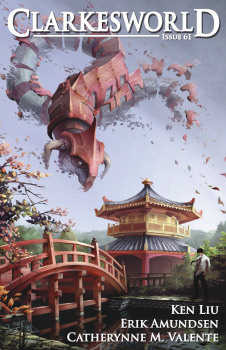 For Clarkesworld what I looked for is what my boss, Neil Clarke, wanted. We have specific guidelines on the website. That’s very different from what I looked for with Salon Futura.
For Clarkesworld what I looked for is what my boss, Neil Clarke, wanted. We have specific guidelines on the website. That’s very different from what I looked for with Salon Futura.
More broadly, of course, I look for the same things other editors want: good, clear prose; the ability to explain complex ideas in an understandable manner; having something interesting to say.
I should note that I have retired from Clarkesworld. December was my last issue. The job of non-fiction editor is being taken over by Jason Heller, who wrote one of the most interesting articles I bought during my tenure there: a history of science-fiction themed rock albums. I’m sure he’ll do a great job.
Q: Your discussions page on Salon Futura looks interesting. Running a Small Press, YA Science Fiction and Cross Genre Crime Novels to name just a few. It must take a lot of time to set up these discussions and edit them. You must have a huge network of contacts of people in the genre. We’ve just lost Anne McCaffrey and I noticed on the lists that people reacted as if they’d lost a friend. Are there people who met through Emerald City almost 20 years ago that you are still in contact with?
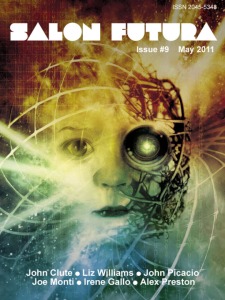 Oh Goddess yes! The thing I value most about having run Emerald City is all of the friends I have made. I knew Neil Gaiman and Kim Newman from way back before any of us was famous, but since Emerald City I have met wonderful writers and editors such as – no, I won’t start making a list, as it would go on forever – just dozens and dozens of really talented people. And many, many wonderful fans as well.
Oh Goddess yes! The thing I value most about having run Emerald City is all of the friends I have made. I knew Neil Gaiman and Kim Newman from way back before any of us was famous, but since Emerald City I have met wonderful writers and editors such as – no, I won’t start making a list, as it would go on forever – just dozens and dozens of really talented people. And many, many wonderful fans as well.
Q: You have your own video channel on You Tube, Video Mewsings. There are readings by China Mieville and Cory Doctorow among others. This is a great way for people to catch up with events that they wouldn’t otherwise get a chance to see. Have you found that the writers you are videoing are happy to be involved?
Mostly, yes. And of course I always ask. I’m not very good at video though. It requires skills that I don’t have, and ideally equipment that I can’t afford. I should probably stick to podcasting.
Q: You have been involved in the SF and F Translation Awards. (See an interview with Cheryl here). I’ve been involved with the setting up one national award and the running of another. It’s a big commitment. I see the awards are just finding their feet and working out what process is most efficient. In the interview you say: ‘I think that the Internet is doing a wonderful job in promoting connections between SF&F communities around the world. You can see from the increasingly international nature of the Hugo and World Fantasy Award ballots that something very exciting is happening. Lavie Tidhar and Charles Tan, with the World SF blog, are doing a superb job in making our world smaller and more connected.’ Truly the web has brought the world together. I’ve been following the Occupy Wall Street movement on twitter. But there is still the language barrier. What do you hope to see the SF&F Translation Awards achieve in the future?
I’d like to see some of the writers that the awards spotlight getting recognition from major publishers. Writing talent isn’t by any means restricted to the English-speaking world. There must be some amazing authors out there, and if the awards can help them get translated, and then bring them to attention of major publishers, then I will be very pleased.
Q: There have been a series of posts by female bloggers on the topic of MenCallMeThings, about males who use the anonymity of the internet to abuse female writers to shut them up. John Scalzi discusses it here in a post titled the Sort of Crap I don’t Get. On September 1st you wrote a post called Bowing Out. You sound like you are feeling burned out. This is a great pity as you have done so much for the genre over the years. What will you be doing to recharge your batteries and restore your inner self?
 No, I’m not burned out, just frustrated. Winning Hugos is a wonderful experience, and I’m very honoured to have one, let alone four. However, the more prestigious an award, the more people will snipe at you for winning. You always expect a bit of nonsense from fandom, but of late I’ve been seeing a number of professionals in the industry suggesting that the Hugos are fixed. I think that’s really disgraceful behaviour, and there’s absolutely no evidence for it. Sadly the recent debacle with the British Fantasy Awards will only make people more willing to believe such accusations.
No, I’m not burned out, just frustrated. Winning Hugos is a wonderful experience, and I’m very honoured to have one, let alone four. However, the more prestigious an award, the more people will snipe at you for winning. You always expect a bit of nonsense from fandom, but of late I’ve been seeing a number of professionals in the industry suggesting that the Hugos are fixed. I think that’s really disgraceful behaviour, and there’s absolutely no evidence for it. Sadly the recent debacle with the British Fantasy Awards will only make people more willing to believe such accusations.
I think awards are a very valuable way of generating interest in good books, and I’d love to continue to be involved in promoting things like the Hugos and the translation awards. But because I have won Hugos that will lead people to say that I have only done so because I’m part of the in-group that fixes the results. So I have to step aside and let other people do the public stuff. I’m working just as hard on others things, I can assure you, and indeed working behind the scenes where I can.
Q: On November 20th it was the thirteenth annual Transgender Remembrance Day, you wrote a post called Transgender Day of Remembrance. This was how I found you (again) and what led me in a round-about way to ask for an interview. You say: ‘globally the average lifespan of a trans person is just 23 years.’ I had no idea. (For a long post on the topic see here). As someone who has lived on both sides of the fence and could ‘pass’ you say: ‘All that changed when I won my first Hugo. Suddenly I had a public profile, and got talked about. The first person to out me publicly was not a trans-hater, or even someone who disliked me, but a left-wing activist I had thought of as a friend who presumably thought I had a moral duty to be out.’ It sounds like you have been through a great deal. Have you considered writing the story of your life, or a fictionalised story amalgamating your experiences with friends’ experiences?
Good grief no! There are far too many trans women’s biographies in the world already. There is nothing I have done that is in any way unusual, and my life has been nowhere near as successful or interesting as, say, Jan Morris, April Ashley, Caroline Cossey or Calpernia Addams.
It is also the case that the public focuses far too much on the negative aspects of trans people lives. It is about time we stopped being known for being “tragic” and started being known for being talented and doing good things. There are plenty of amazing people who can fulfil that requirement better than I can.
Q: I was prompted to start this series of interviews because there seems to be a perception in the US and the UK that fantasy is a bit of a boy’s club. Do you think there’s a difference in the way males and females write fantasy? (Looking at your post on YA writers, perhaps I should rephrase the question to include them as well!).
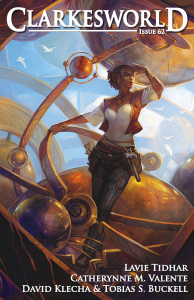 Well it all depends on who you ask and what they mean by “fantasy”. If you ask many male fantasy fans to name a few women fantasy writers they won’t be able to because they never read, or even notice, books by women. Yet if you look along the shelves in the SF&F section of a bookstore in the US or UK almost every book you see by a woman will be classifiable as “fantasy” in some way or another.
Well it all depends on who you ask and what they mean by “fantasy”. If you ask many male fantasy fans to name a few women fantasy writers they won’t be able to because they never read, or even notice, books by women. Yet if you look along the shelves in the SF&F section of a bookstore in the US or UK almost every book you see by a woman will be classifiable as “fantasy” in some way or another.
Fantasy is a category that women writers are being forced into because the major publishers assume that no one will buy SF by a woman. Obviously people like George Martin and Joe Abercrombie do very well in fantasy too, especially that small subset of fantasy that features rough-hewn, Conan-like heroes who slaughter their enemies with great enthusiasm. But in the US and UK fantasy is seen as very much women’s writing.
On average, males and females do write about different subjects because society forces them into very different roles. That doesn’t mean that all men write one way and all women write another way, nor does it mean that men can’t write books that appeal to women, or vice versa. All of this “one or the other” stuff is nonsense. No one knows that better than trans people.
The problem is that major publishers these days have no interest in books that will only sell well, they only care about books that will be huge best sellers. To get that they try to cut out anything that they think might mark a book out as unusual, everything has to be aimed at the central peak of the distribution curve. And that leads of obsessive concentration on gender “norms”.
Q: Following on from that, does the gender of the writer change your expectations when you pick up their book?
Given the way that major publishers behave, there is a natural expectation that a book by a woman will be focussed on “women’s issues” (for which read “romance”) and a book by men will be focussed on “men’s issues” (for which read “killing people”). Thankfully very many writers manage to confound expectations.
Also, of course, independent presses don’t have the same idiotic obsessions, which is one of many reasons why I love them.
Q: And here’s the fun question. If you could book a trip on a time machine, where and when would you go, and why?
I’ve always fancied visiting the ancient Romans. They seem so similar to us in many ways, and yet fascinatingly different.
But the thing I’d really like to do is learn more about the ancient civilizations of Africa. We know so much about the history of Europe, of China, India and Japan, even of the Aztecs and Incas. But we know almost nothing about the great empires of Africa: Meroë, Songhai, Zimbabwe and so on. When England was embroiled in the Wars of the Roses, Timbuktu was the biggest, wealthiest city in the world. So much of that has been lost, apparently forever. A time machine could help bring it back.
Follow Cheryl on Twitter. @CherylMorgan
Follow Salon Futura @SalonFutura
Follow Wizard’s Tower Press @WTPress


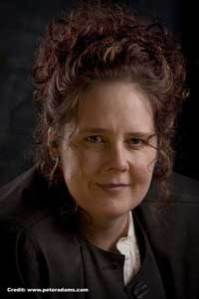










![Newton-CityOfRuinPBUK[3]](http://writersagainstobscurity.files.wordpress.com/2011/11/newton-cityofruinpbuk3.jpg?w=198)









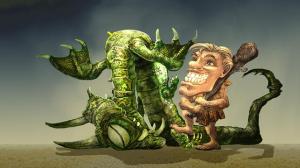





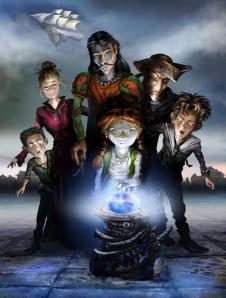








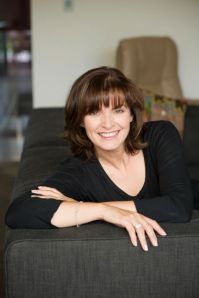
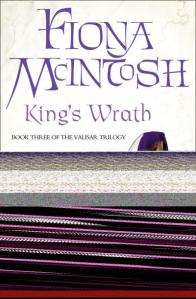







![Newton-CityOfRuinPBUK[3]](http://writersagainstobscurity.files.wordpress.com/2011/11/newton-cityofruinpbuk3.jpg)
